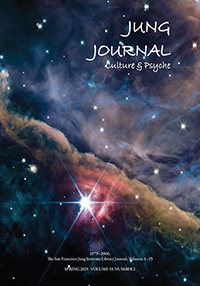
Sanja Ivic, “The Third Reich of Dreams: Dreams in Jungian Psychology,” Jung Journal: Culture and Psyche, Vol. 19, Issue 2, 2025, pp. 169-180.
This study applies Carl Jung’s analytical psychology to political studies, investigating how totalitarian regimes influenced the collective unconscious. This paper analyzes the dreams presented in Charlotte Beradt’s book The Third Reich of Dreams: The Nightmares of a Nation 1933-1939 (1968), relying on Carl Jung’s analytical psychology and his concepts of the shadow (the darker, repressed aspects of the psyche) and the collective shadow (the dark, unconscious aspects of the psyche of a group – usually a nation, culture, or society – that are repressed, denied, or projected onto others).
Jung’s analytical psychology is particularly relevant to today’s global political atmosphere – a world polarized by authoritarian tendencies and widespread Shadow projections onto ideological or ethnic “others.” Jung’s studies reflect deep existential anxiety for the modern individual who has been torn between conflicting ideologies, political systems, and global conflicts. Jung’s solution to the existential crises we face – whether war, technology, or any other global issue – remains in the process of individuation – a journey into self-awareness, personal growth, and the integration of the unconscious mind. He believed that real change cannot be imposed from without through political or technological means, but must come from within the individual, who must confront his or her own unconscious motives, fears, and projections.
Only in confronting the unconscious – through self-awareness, moral responsibility and integration of the shadow – will the mistakes of history not be repeated, and liberation from the collective madness that leads to war, social collapse and technological slavery will be possible. This process of inner revolution transforms the individual into conscious action, enables resistance to ideological extremes, and thus builds a more harmonious, ethical and responsible society.
https://www.tandfonline.com/toc/ujun20/19/2